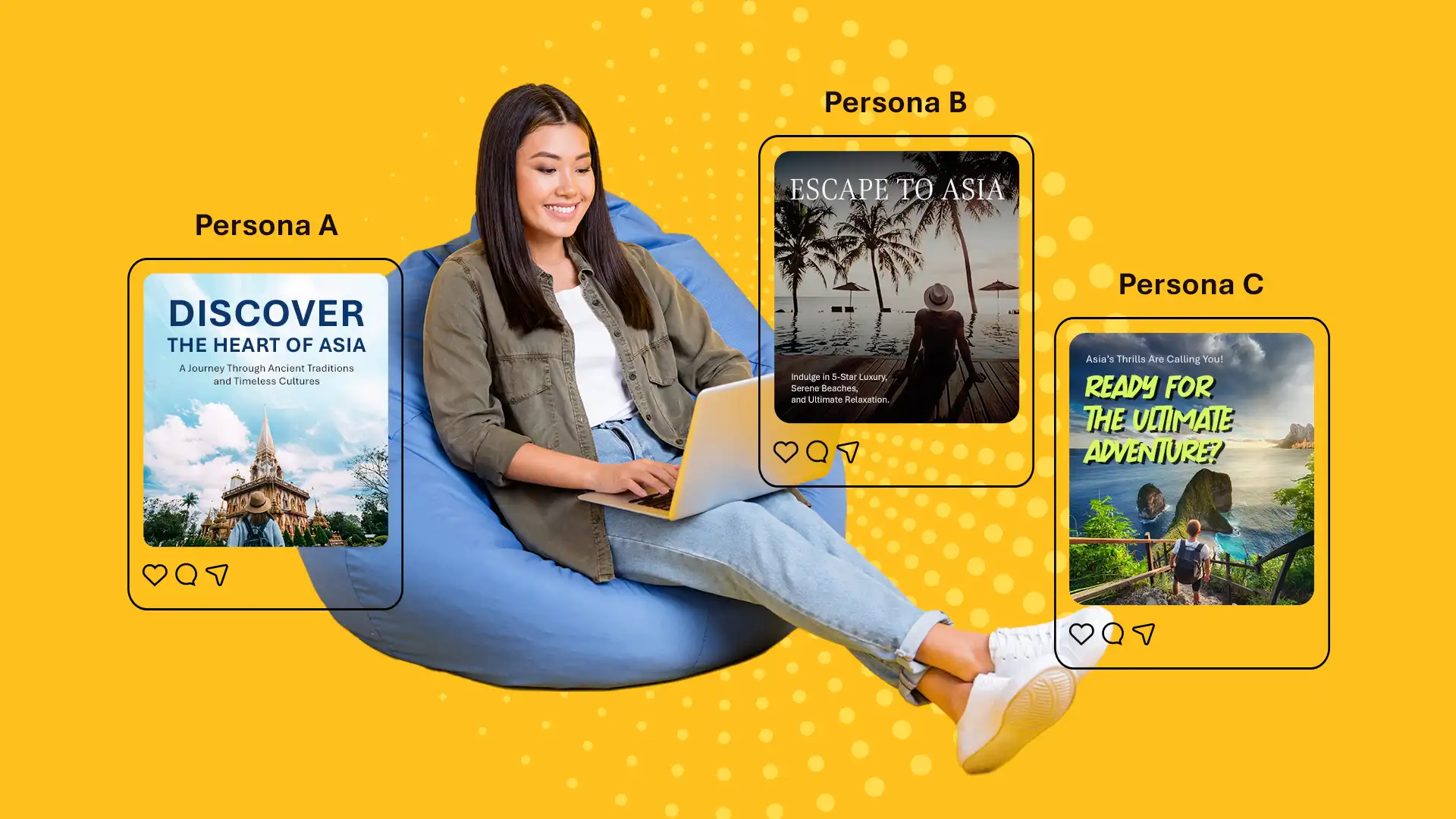Remember the days of one-size-fits-all marketing blasts? The generic email newsletters cluttering your inbox, the irrelevant banner ads chasing you across the web? Thankfully, those days are fading fast. We’re living in an era where consumers don’t just appreciate personalization; they expect it. They crave experiences tailored to their unique needs, interests, and journey.
Delivering this level of personalization manually, especially for businesses with thousands or even millions of customers, has always been the marketer’s Everest – a monumental, seemingly impossible climb. But now, we have a powerful climbing partner: Artificial Intelligence (AI). How AI is transforming digital marketing lies at the heart of this revolution, enabling hyper-personalized campaigns, predictive analytics, and real-time decision-making at unprecedented scale. From optimizing ad spend to crafting dynamic content that resonates with individual users, AI isn’t just reshaping strategies—it’s redefining what’s possible in connecting brands with their audiences.
AI isn’t just another buzzword bouncing around boardrooms; it’s the engine fundamentally transforming digital marketing, finally making personalized campaigns at scale a practical reality. It’s moving personalization from a niche tactic for high-value segments to a core strategy applicable across the entire customer base.
At its heart, AI’s power lies in its ability to process and understand vast amounts of data far beyond human capacity, identify intricate patterns, predict future behaviour, and automate actions in real-time. Let’s break down how this translates into tangible marketing transformations.
1. Hyper-Segmentation: Understanding Customers Like Never Before
Effective personalization starts with truly understanding your audience. Traditional segmentation often relies on broad demographic categories (age, location, gender) or basic purchase history. AI takes this lightyears further.
- Deep Data Analysis: AI algorithms can sift through colossal datasets – website interactions, purchase history, social media activity, app usage, customer service logs, third-party data, and more.
- Pattern Recognition: It identifies subtle correlations and micro-segments that human analysis would likely miss. Think “users who viewed product X, read blog post Y, and live in urban areas Z are 70% more likely to respond to offer A within the next 48 hours.”
- Predictive Analytics: AI doesn’t just look backward; it predicts future behaviour. It can forecast customer lifetime value (CLV), identify customers at risk of churning, or pinpoint those most likely to convert on a specific campaign.
This granular understanding allows marketers to move beyond clumsy buckets and create dynamic, nuanced audience segments based on real-time behaviour and predicted intent.
2. Dynamic Content Creation and Optimization: The Right Message, Every Time
Once you understand the micro-segments, the next challenge is delivering the right message. AI steps in here, too, automating and optimizing content delivery across various channels.
- Personalized Website Experiences: AI can dynamically alter website content, layouts, and calls-to-action based on individual visitor profiles and behavior. A first-time visitor might see an introductory offer, while a loyal customer sees recommendations based on past purchases.
- Tailored Email Marketing: Forget generic newsletters. AI can personalize subject lines, email copy, product recommendations, and send times for each recipient, dramatically increasing open and click-through rates. Tools like Mailchimp’s AI-driven recommendations can generate multiple versions of copy and predict which will perform best for specific segments.
- Smarter Ad Copy and Creatives: AI platforms like Google’s Responsive Search Ads can generate numerous ad variations (headlines, descriptions, images) and automatically test which combinations resonate best with different audience segments. It optimizes ad spending by focusing on what works for specific micro-groups.
This isn’t just about swapping out a first name; it’s about fundamentally tailoring the core message and offer to align with the individual’s context and likely interests at that specific moment.
3. Predictive Lead Scoring and Journey Orchestration
Not all leads are created equal. AI helps sales and marketing teams focus their efforts on where they’ll have the most impact.
- Intelligent Lead Scoring: AI analyzes lead behavior and characteristics against historical data to predict the likelihood of conversion. This allows teams to prioritize high-potential leads and nurture cooler leads more efficiently.
- Personalized Customer Journeys: AI can map out and even automate ideal customer journeys. Based on a user’s actions (or inactions), AI can trigger the next best step—whether it’s sending a specific email, showing a targeted ad, alerting a sales rep, or offering relevant content—ensuring a seamless and relevant progression towards conversion or retention.
4. Conversational AI: Scaling Personalized Interactions
Chatbots and virtual assistants powered by AI are revolutionizing customer service and engagement.
- 24/7 Personalized Support: AI chatbots can handle a vast number of customer queries simultaneously, providing instant, personalized answers based on the customer’s history and the context of their question.
- Lead Qualification and Data Capture: Bots can engage website visitors, ask qualifying questions, capture valuable lead information, and even schedule meetings, all while maintaining a personalized conversational flow.
- Proactive Engagement: AI can trigger chatbots to proactively engage visitors showing signs of confusion or specific interest, offering help or relevant information before they even ask.
These tools free up human agents for more complex issues while ensuring every customer receives immediate, relevant attention.
5. Programmatic Advertising Precision
AI is the brain behind modern programmatic advertising, enabling hyper-targeted ad buying at scale.
- Real-Time Bidding (RTB) Optimization: AI algorithms analyze countless data points in milliseconds to determine the optimal bid price for placing an ad in front of a specific individual user across the web, maximizing relevance and ROI.
- Audience Targeting Refinement: AI constantly refines audience targeting based on campaign performance, identifying lookalike audiences and optimizing placements to reach the most receptive users.
This ensures marketing budgets are spent efficiently, reaching the right people with the right message at the right time, minimizing wasted ad spend on irrelevant audiences.
The “Scale” Imperative: Why AI is Essential
Could a large team of marketers theoretically achieve deep personalization for a small group of customers? Perhaps. But scaling that effort to thousands or millions is impossible without technology.
- Data Overload: Humans simply cannot process the sheer volume, velocity, and variety of customer data available today.
- Real-Time Requirements: Personalization is most effective when it’s timely. AI can analyze data and trigger actions in milliseconds—a speed unattainable manually.
- Complexity Management: Managing thousands of micro-segments, content variations, and journey paths requires sophisticated automation that only AI can reliably provide.
- Continuous Optimization: AI tirelessly tests, learns, and optimizes campaigns 24/7, constantly improving performance based on incoming data.
Navigating the Challenges: Ethics and Implementation
While the potential is immense, adopting AI in marketing isn’t without its considerations.
- Data Privacy and Ethics: Using customer data requires transparency and adherence to regulations like GDPR and CCPA. Ethical AI practices are paramount.
- Data Quality: AI models are only as good as the data they’re trained on. Ensuring clean, accurate, and relevant data is crucial.
- Human Oversight: AI is a tool, not a replacement for human strategy and creativity. Marketers need to guide the AI, interpret its findings, and ensure campaigns align with brand values.
- Integration Complexity: Implementing AI tools often requires integrating various marketing platforms and data sources, which can be technically challenging.
The Future is Personalized and Powered by AI
The integration of AI into digital marketing is not a fleeting trend; it’s a fundamental shift. Businesses that embrace AI-driven personalization will build stronger customer relationships, achieve significantly higher engagement rates, improve marketing ROI, and gain a substantial competitive advantage.
By leveraging AI to understand customers deeply, tailor content dynamically, predict behavior accurately, and automate interactions intelligently, marketers can finally deliver on the promise of true one-to-one marketing, executed flawlessly across millions. The era of scalable personalization is here, and AI is holding the key. Investing in these capabilities isn’t just about staying current; it’s about defining the future of customer engagement.
Let’s build smarter campaigns together. Reach out to our team today.
Whether you’re starting from scratch or optimizing what you already have, we’ll help you turn great ideas into powerful, high-performing digital experiences.



